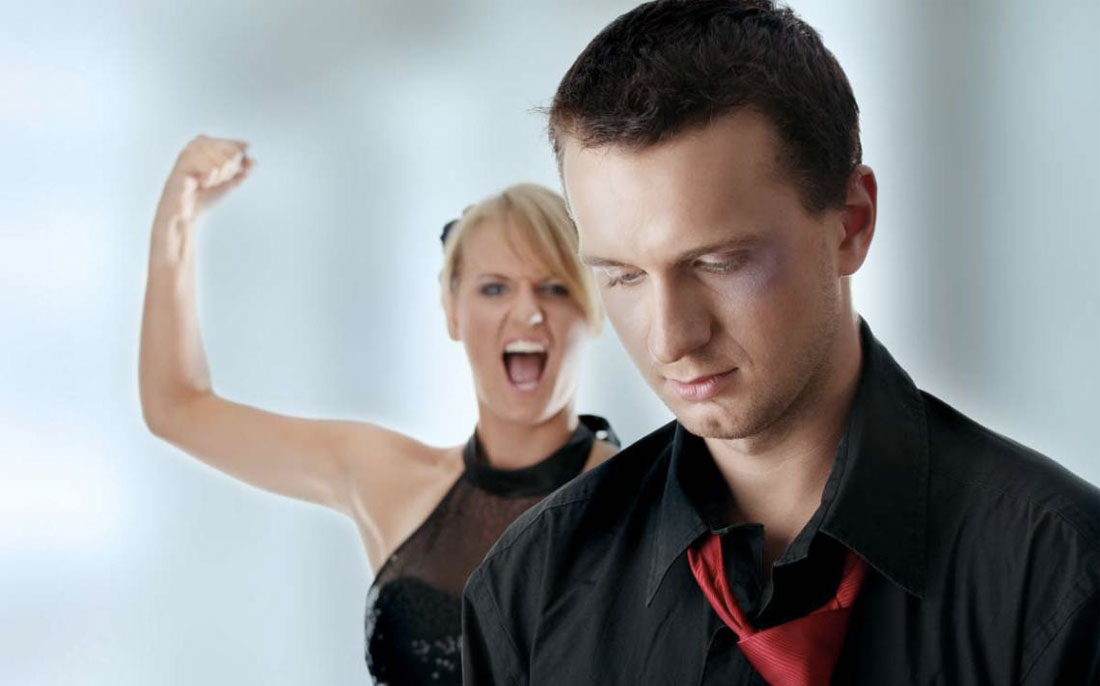With recent headlines announcing girlfriends and wives’ arrest for physically abusing their partners, a question that we don’t ask often enough has been raised! Out of all of the male-on-female domestic violence cases we hear so much about, how many men are victimized?
While it’s not very common to hear about the violence exerted against men in a couple, it’s a saddening fact and silent reality that men suffer too! Historically, a stereotype characterized by physical force and insensitivity has been marked around the male figure, where the villains are always men, and victims are women. But is it always the case? Nowadays, where gender equality is supposed to be prevailing, are we really considering genuine equality between men and women? Such stereotypes draw an incomplete picture since new research reveals a substantial number of men being victims of Intimate Partner Violence (IPV)!
Violence in a relationship is anything related to physical, psychological, mental, and sexual aggression. It’s also always wanting to maintain control over the other person. It all begins with any uncomfortable comments that may seem like a game at first, but the situation keeps on worsening as time passes. A case of male abuse is much more common than we think. Each and every domestic violence case must be taken seriously! It’s high time to spotlight the problems faced by men that typically lurk in the shadows of society!
Numbers Speak for Themselves

A recent British government survey shows that 9% of men have experienced some forms of domestic violence, which represents approximately 1.4 million men. That includes a whole lot of harassment, physical and sexual abuse. A major U.S. study found that male IPV victims are often beaten, kicked, grabbed, or strangled by their partners. Interestingly, a growing number of international studies indicate that men and women experience IPV to a similar extent. For example, a recent Statistics Canada survey concluded that “the percentage of men and women reporting spousal violence in the past five years was 4%.
But Why Men Don’t Report?

Nonreporting is also a real issue. According to researches, most men seeking help reportedly experienced gender-stereotyped treatment from professionals. Many men don’t report because of the following:
- Lack of legal and family support and social awareness – Laws regarding battered men’s protection are practically scarce. While there are all kinds of emergency hotlines or services for abused women, it’s unfortunately not the same case for ill-treated men! Many times, calls received by abused men are left unanswered.
- Fear of being ridiculed – The shame of recognizing oneself a victim in a society in which, precisely because of gender attributions, the male sex “must be strong” (men have traditionally been asked for strength, money, and production). Skeptically, laughter is a common reaction among male victims of IPV. This is demonstrated in the short video “Social Experience” presented here, which examines the public’s responses to a man being mistreated by a woman on the street. This video has been viewed over 8 million times on YouTube and is a potent educational tool.
- Being subdued or weak can generate feelings of humiliation.
- Beliefs around abuse: I deserve it, I provoked it, I made her angry, then it’s my fault.
Behind the Veil: Inside the Mind of Abused Men

- Looking for this on the internet is also not in men’s favor. You’ll see a laundry list of results for the psychological profile of men who abuse women. Today, we’ll shed some light on the state of mind of battered men!
- They have very low self-esteem and self-validation.
- They seek the approval of their partner regularly.
- Their partner can be like a mother who punishes in a “normal” way. – You may have suffered abuse as a child or have seen it in the family.
- Love is understood exclusively as sacrificing themself for the other. We get it that loving the other often implies sacrifices, but an abused man often gives himself way too much to his partner.
- They are stuck in the relationship and can’t find any way out!
- They tend to idealize or overvaluetheir partner.
- Symptoms of stress, anxiety, somatic problems such as headaches, stomach pain are very often.
- They often withdraw or distance themselves from their friends and family.
Changing Perspectives
Many police agencies and practitioners are actively addressing the need for law enforcement and victim assistance groups to meet male victims’ unique issues. They are refining the availability of specialized services tailored to assist this underreported victim group. In this way, it will help raise public awareness and hopefully mitigate the unfavorable effects of stigmatization or fear, thus promoting public safety for all.

